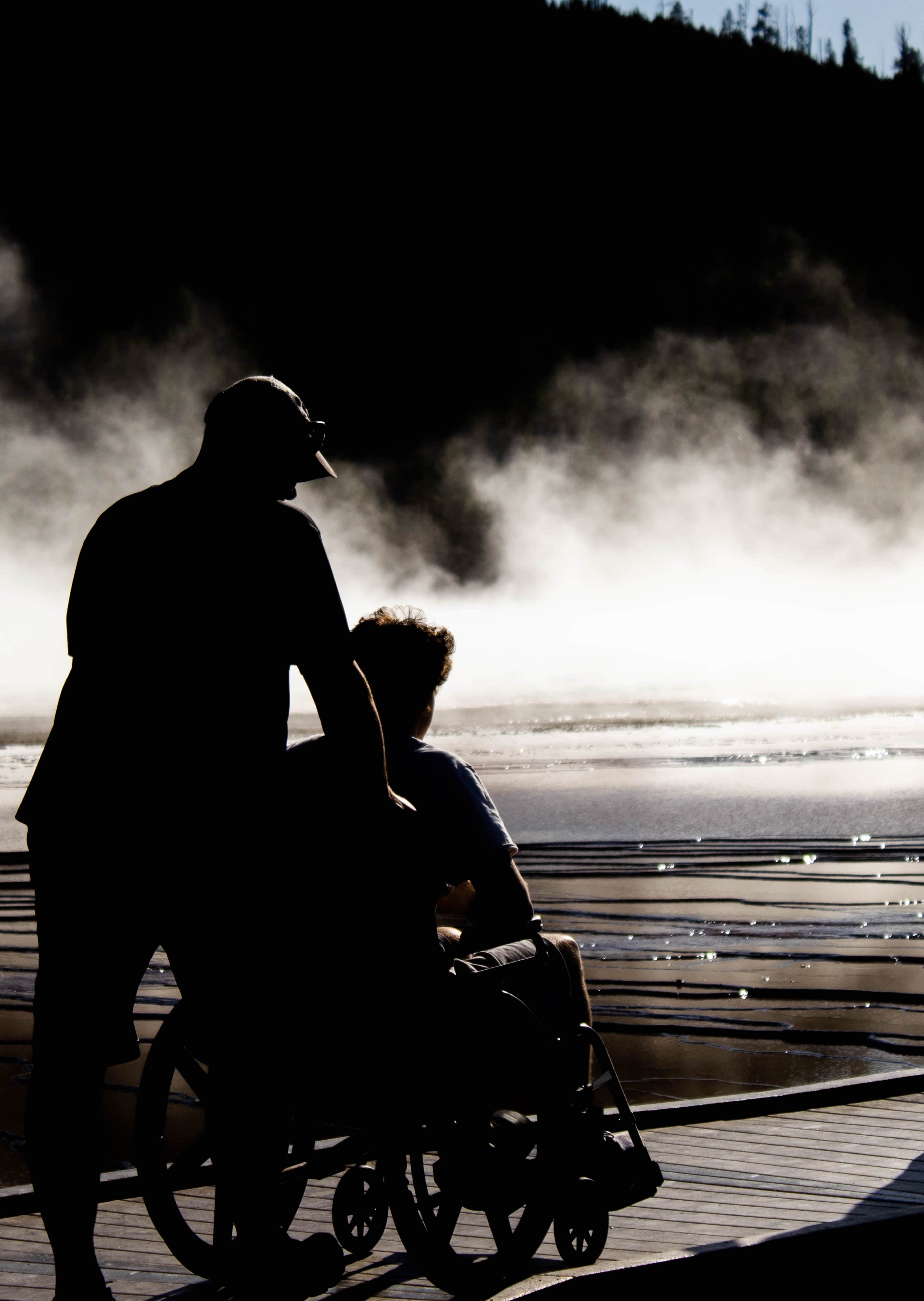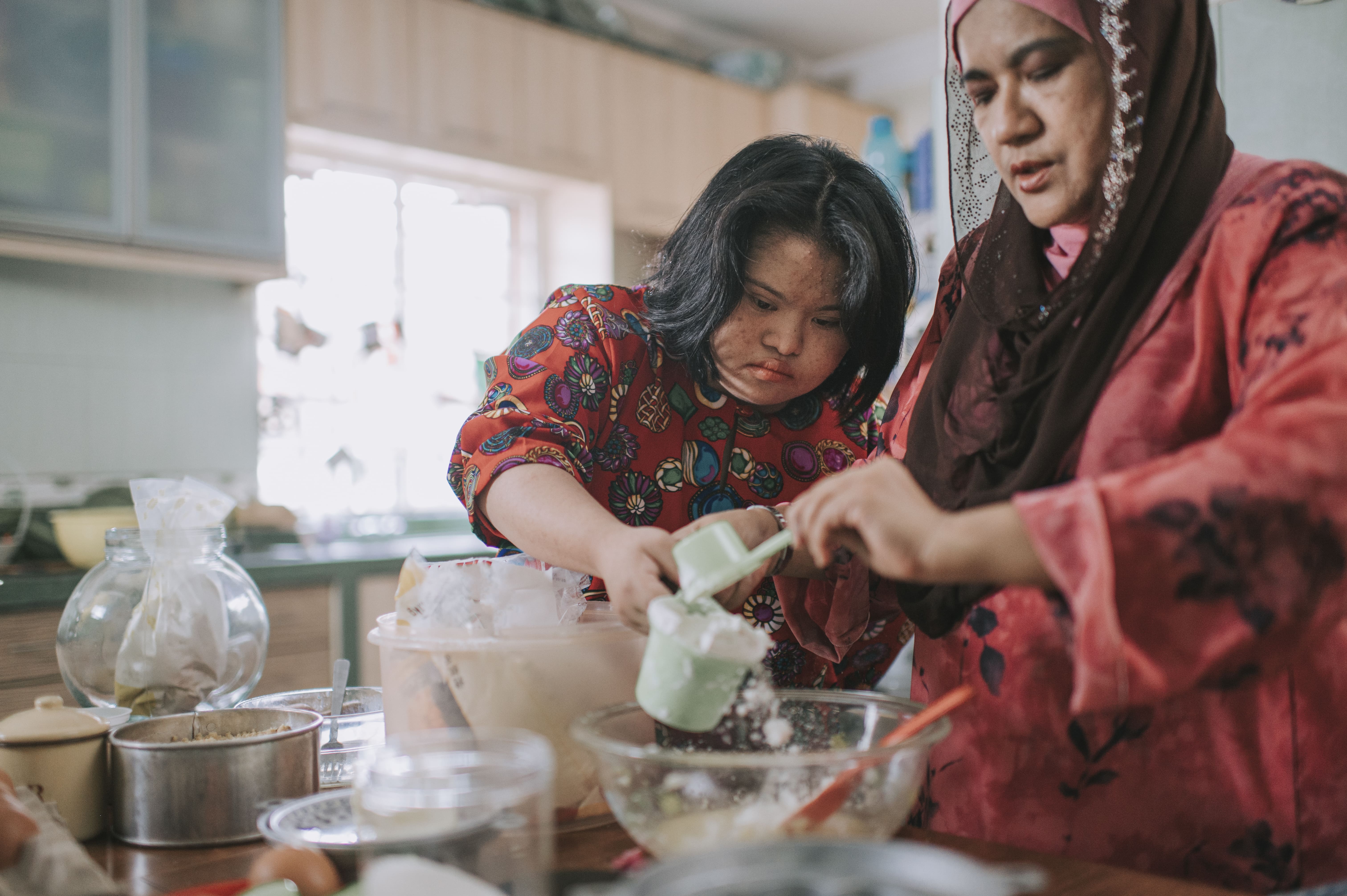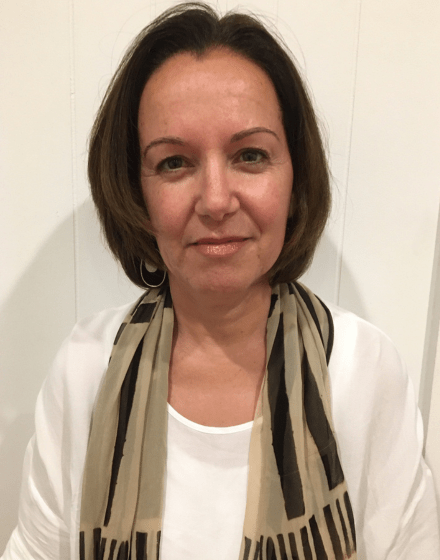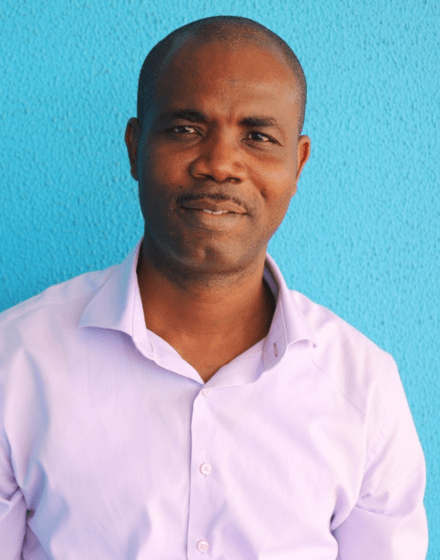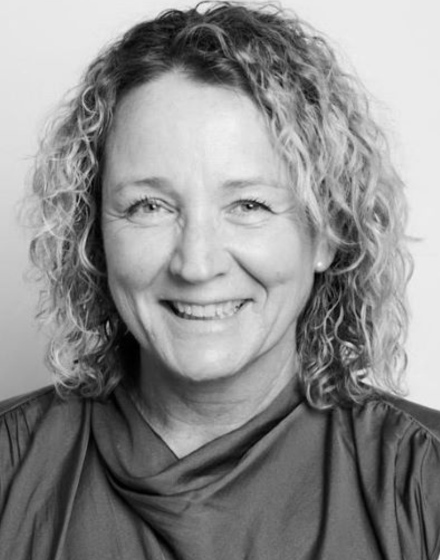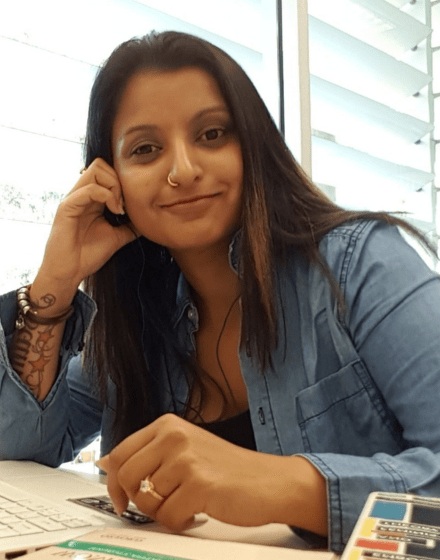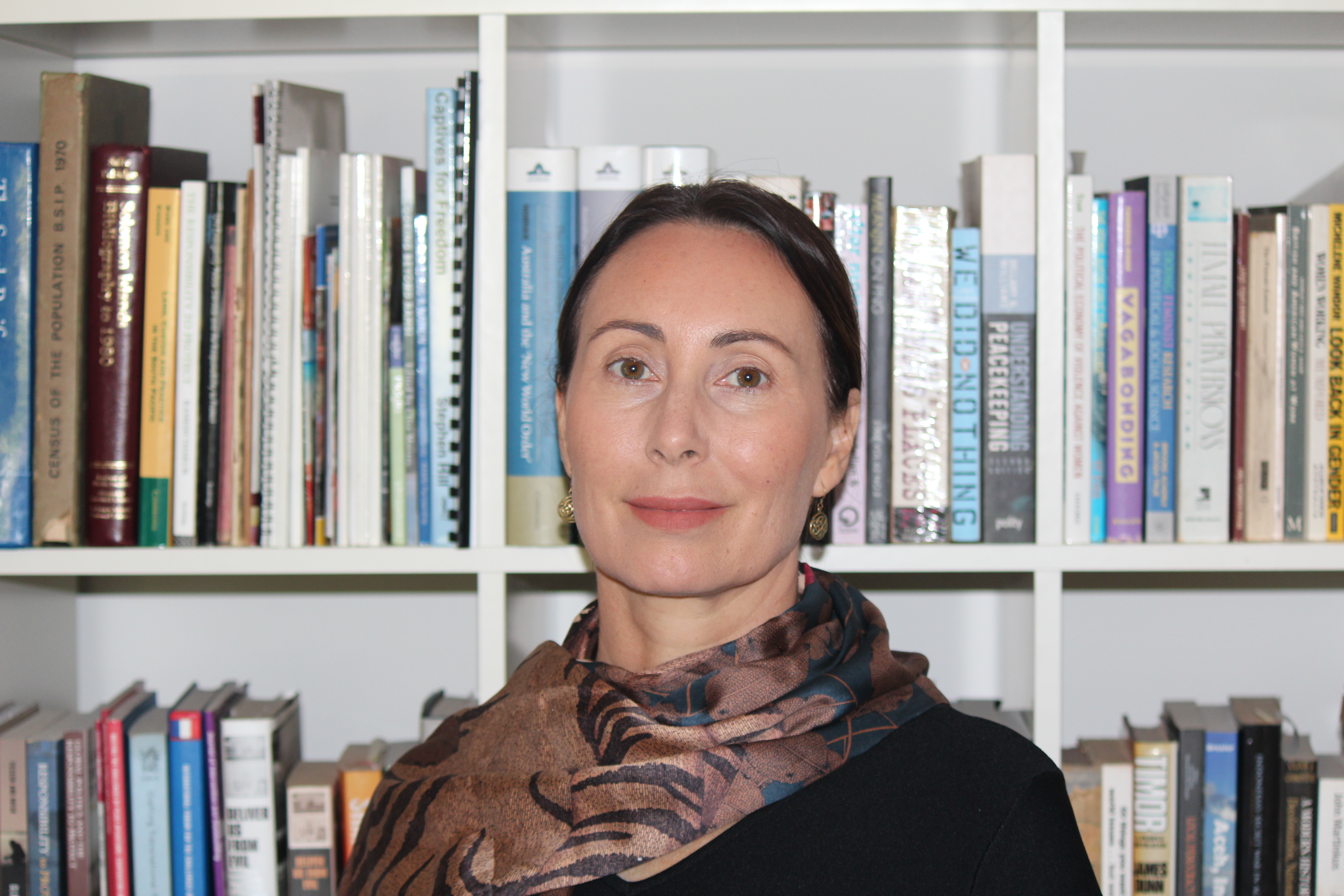You can search for courses, events, people, and anything else.
For ageing parents who continue to be the primary carers for adult sons and daughters who have disabilities, there is a terrible and constant dread: what will happen to my child when I am too old to care for them?
For ageing parents from migrant backgrounds, this question is further complicated by a lack of culturally sensitive and responsive government funded services, systemic racism, language barriers, and at times, unhelpful attitudes towards disability within their own cultural communities. By far, most of the everyday support and care for family members with disabilities falls to women — primarily mothers.
This intersection of age, migration, ethnicity, disability, and gender has long been a focus of Professor Karen Soldatic’s work at Western Sydney University. "There is this long history of active exclusion of disability through the migration test and in turn, culturally responsive and appropriate services for first- and second-generation migrant families have only recently become a serious concern in Australian disability public policy," says Soldatic, who is herself a second-generation migrant.
As a result, living with a disability and caring for persons with disabilities within one’s family can be isolating for people from culturally and linguistically diverse (CaLD) backgrounds. Most of the current aged and disability care services provided in community have not been designed with consideration of the specific needs of Australians from multicultural backgrounds. Planning for care transitions is therefore more difficult for migrants who care for family members with disabilities.
Multicultural communities in Australia have long been underserved by disability services, and reports have suggested that the new multi-billion-dollar NDIS policy has not necessarily increased access to services as it was hoped. Soldatic says that much of this failure is about some fundamental differences in understanding service practice in Australia. "A lot of that is because it’s a highly individualised process of funding, so you need to lobby, and have the skills and resources to advocate for oneself."
Need to know
- Many primary carers from culturally and linguistically diverse backgrounds (CaLD) have difficulty in accessing support and disability services.
- To address this, a team of researchers from Western are working with the MDAA to develop a toolkit for ageing carers from CaLD backgrounds.
"There is this long history of active exclusion of disability."
To address these challenges, a team of researchers at Western Sydney University, including Soldatic and Drs Daniel Doh, Lise Mogensen, Rohini Balram, and Nichole Georgeou, have partnered with the Multicultural Disability Advocacy Association (MDAA) of NSW. Together they are developing an information toolkit to help ageing primary carers from culturally and linguistically diverse backgrounds navigate the increasingly complex world of disability and aged care funding, supports and services, and how to plan effective transitions to care for both ageing parents and adult children with disabilities.
"It’s not about determining what that path should be specifically for each family, but providing the necessary information to get people to start to plan and think about what that process might look like for them," Soldatic says. "It’s about providing an information pathway that will support them to determine what they might need to put in place, and where those services are."
This is about much more than just housing. "We need to get away from the fallacy that once a person has moved out of the family home, they don’t need any care from an external person to overview their care and support package," Soldatic says. "It’s not just functionality like shopping and things, but having a high-quality life once people have settled into their new living arrangements."
Doh describes a typical scenario for this transition: 'Jane', an elderly lady and first-generation migrant, who has been the sole carer for her disabled son for his entire life (33 years), is now starting to experience her own age-related health issues. She has no partner, and limited social connections, speaks very little English, and her other son is busy with his own life.
"Her ability to access resources is limited unless someone comes to explain to Jane what options are available for her," Doh says. "She has no clue what is next for her."
The team’s work with migrant communities in western Sydney has highlighted the need for more culturally competent and tailored services not only to meet the needs of individuals in this situation but also to empower them to ask for help. "You don’t treat culture or the way of life of people as an annex," Doh says. "You treat it as embedded, integrated into our actions, the way we talk and think." This requires a rethink of how we use language and concepts in policies and services for multicultural communities.
The aim of the information toolkit being developed through research with ageing parent-carers is to help families navigate the complexity of service providers and government funding. To get this right so that it is accessible and culturally meaningful to families, the most important feature of the design is to ensure that it is grounded in the everyday experiences of ageing carers, persons with disabilities, and the professional staff who work with these very families, especially advocates from the migrant-disability sector. Doh emphasises the importance of this 'co-creation' anchored in people’s lived experience, as opposed to a detached academic process.
The first part of developing this toolkit is understanding what migrant carers actually need. The team at Western are working with MDAA to survey ageing carers within CaLD communities to build an understanding of this. "We’re still thinking of the specific nature of the toolkit because we don’t want to produce something or bring out a product that is still not accessible," Doh says.
Susan Laguna, executive director of the MDAA of NSW, says the CaLD community faces many challenges in accessing existing services to aid in the transition from disability care to aged care. "We’re talking about the language difficulty in accessing, we’re also looking at the complexity of the application process," she explains. "Sometimes our cohorts are prevented from accessing services because the language that the government uses for services might be difficult to understand."
People from CaLD communities also often prefer to speak to someone in person, yet there is increasing automation in the application processes for disability and aged care.
For Soldatic, the toolkit is part of a bigger effort to change the narrative. "How do you destigmatise disability for communities where they can celebrate the diversity within their own culture and family that’s inclusive of disability?"
"We need to get away from the fallacy that once a person has moved out of the family home, they don’t need any care from an external person to overview their care and support package."
Meet the Academic | Professor Karen Soldatic
Karen Soldatic is a Professor in the School of Social Sciences and Institute Fellow at the Institute for Culture and Society. She was awarded a Fogarty Foundation Excellence in Education Fellowship for 2006–2009, a British Academy International Fellowship in 2012, a fellowship at The Centre for Human Rights Education at Curtin University (2011–2012), and an Australian Research Council DECRA Fellowship (2016–2019). Her research on global welfare regimes builds on her 20 years of experience as an international (Cambodia, Sri Lanka, Indonesia), national and state-based senior policy analyst, researcher and educator. She obtained her PhD (Distinction in 2010 from the University of Western Australia. Karen works with a number of international teams examining issues of disability justice in the global south with a particular focus on gender, violence and inequality.
Meet the Academic | Dr Daniel Doh
Daniel Doh (PhD) is Lecturer in Social Work at Western Sydney University. Daniel holds a PhD (Social Science) from Edith Cowan University, Western Australia, and an MPhil and Bachelor (Social Work) degree from the University of Ghana. He joined Western in 2019 and is currently the Academic Program Advisor (Master of Research – Social Science). His research focuses on understanding social protection practices, ageing, disability, migration, and aged care systems. Dr Doh also conducts program evaluations to understand the outcomes and contributions of social work interventions to human well-being. As a translational mixed-method researcher, Daniel has contributed to scholarships in social policy, social work, and other cognate disciplines. He provides professional development training in program evaluation, social protection system designs, and tailored social science research methodology training on various international capacity-building platforms. Daniel has worked in different country contexts, including Ghana, Kenya, Nigeria, Sierra Leone, Liberia, and Australia.
Meet the Academic | Associate Professor Lise Mogensen
Associate Professor Lise Mogensen is an award-winning researcher and research educator in the School of Medicine where she coordinates the Doctor of Medicine projects. Lise is an interdisciplinary researcher with a background in Occupational Therapy and a PhD in social justice (Disability Studies, Childhood Sociology). She has more than 20 years’ experience in working directly with people with disability, personally, clinically and in research. Her research spans Critical Disability Studies, Childhood Sociology, Health Sociology, and Medical Education. She has a particular interest in studies on well-being, diagnosis and identity, inclusion, participation, and transition. Lise specialises in co-design and participatory research methodologies, and consults on research methods and ethics locally and internationally. She is passionate about research with translation into policy and practice, and publications from her projects have influenced best practice guidelines for specialist health service delivery and inclusive education.
Meet the Academic | Dr Rohini Balram
Dr Rohini Balram is an ethnographic arts-based researcher in the School of Education and the School of Social Sciences. Her research work centres on gender, race, class and other socio-cultural factors with specific focus on (lack of) sports participation and near invisibility of Brown (forced) migrant women in the sporting arenas of the Oceania/South Pacific diaspora. Dr Balram has completed a PhD at Western Sydney University in 2022 - her dissertation is titled: Indo-Fijian women as subversive bodies in Fiji’s sporting arenas: An Arts based study.
Dr Balram is also a creative writer and poet and is part of Western Sydney University’s Creative Communities and Cultural Wellbeing working group. She is highly passionate about employing arts-based research methods with vulnerable populations and with sensitive topics/areas of study. In her recent research projects, Dr Balram has used arts-based research methods and an intersectional lens to understand, investigate and present intersectional identities and lived experiences of marginalised and minority communities such as: refugee women, aging citizens of multicultural background, people with disability and LGBTIQ+ students in the Western Sydney region.
Meet the Academic | Associate Professor Nichole Georgeou
Associate Professor Nichole Georgeou is Associate Dean, International in the School of Social Sciences and Director of the Humanitarian and Development Research Initiative (HADRI) at Western Sydney University. Her areas of research and academic writing broadly fall into three streams (1) civil society and volunteering for development; (2) aid and development, and (3) human security and food systems. These themes combine in HADRI and in its concerns with the articulation of humanitarian practice and development interventions. She is a regular article and book reviewer in the disciplines of development studies, sociology and politics and her research has been published in Journal of Sociology, Australian Journal of History and Politics, PORTAL: Journal of Multidisciplinary International Studies, Australian Journal of Political Science, PLOS One, Voluntas, Third Sector Review, and Journal of Intercultural Studies. She is an Editorial Board member for Development in Practice, and the International Gramsci Journal. Nichole plays an active role in issues of aid and development through her involvement in the Development Studies Association of Australia.
Credit
Future-Makers is published for Western Sydney University by Nature Research Custom Media, part of Springer Nature.
© Edwin Tan/E+/Getty
© David Knudsen on Unsplash

